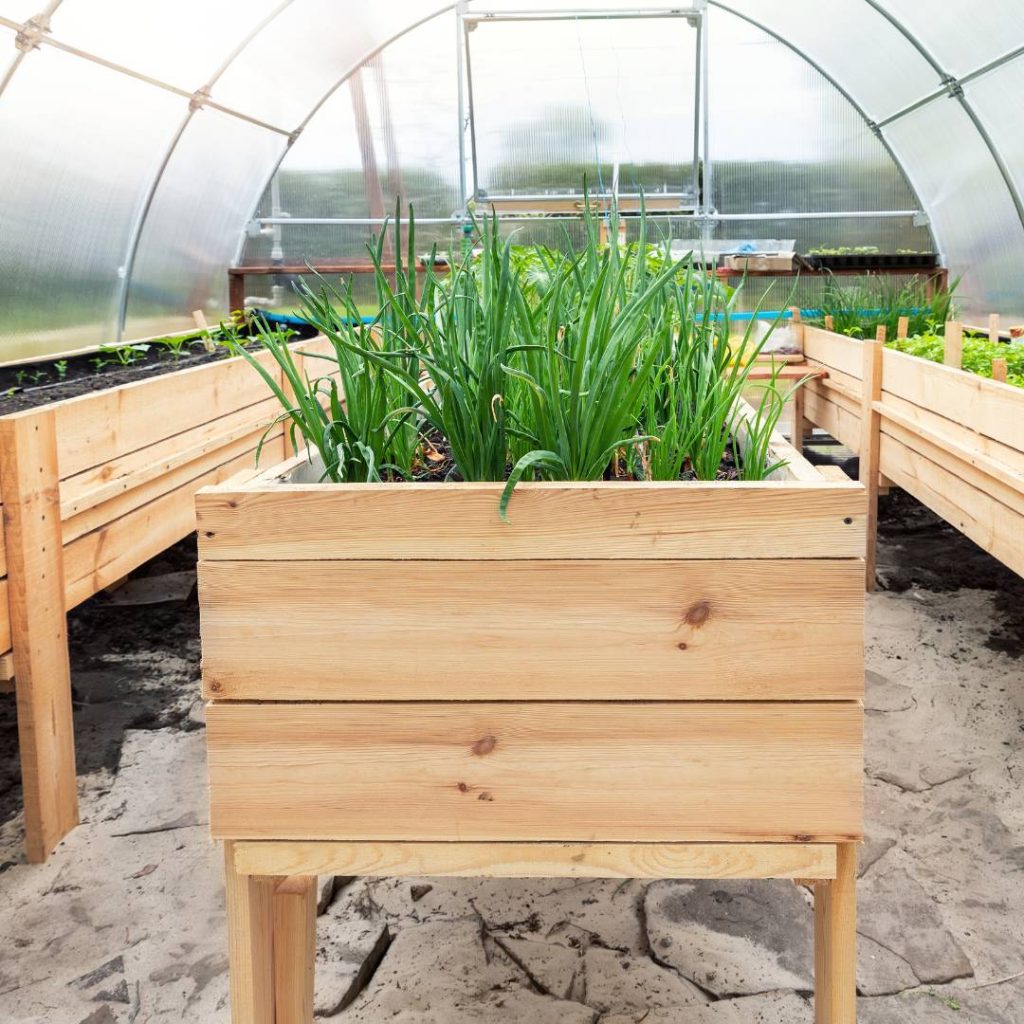
Choosing the right materials for a raised garden planter is crucial to ensure durability, longevity, and safety for your plants.
Here are some of the best materials that you could consider:
Cedar Wood
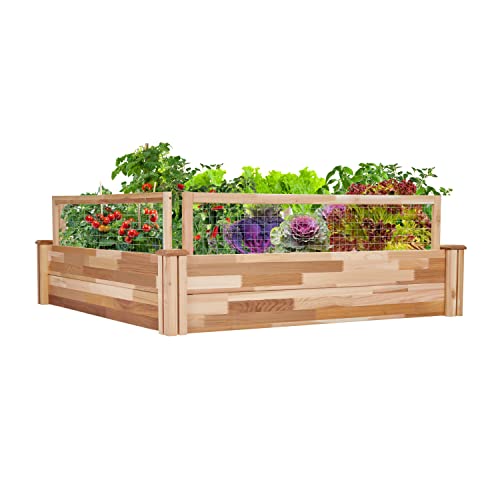
Cedar is one of the most popular materials for raised garden beds.
This type of wood is naturally resistant to rot and pests, making it a great choice for outdoor use.
It’s also non-toxic, so it won’t leach any harmful chemicals into your soil.
Redwood
Similar to cedar, redwood is resistant to rot and pests.
It’s a bit more expensive than cedar but also tends to last longer.
Composite Wood
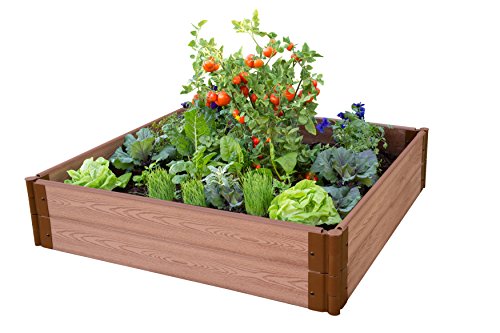
Composite wood, made from a mixture of wood fibers and recycled plastic, is a sustainable and durable option.
It’s resistant to rot and pests, and it won’t warp or crack like natural wood can.
Resin
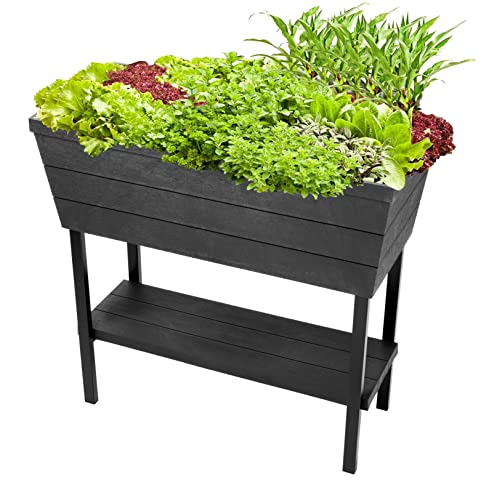
Resin planters are lightweight, durable, and relatively inexpensive.
They resist rotting, cracking, and chipping.
They are also non-porous, which can be an advantage in preventing soil diseases.
However, the non-porous nature also means they retain moisture, which might require careful watering management.
Recycled Plastic
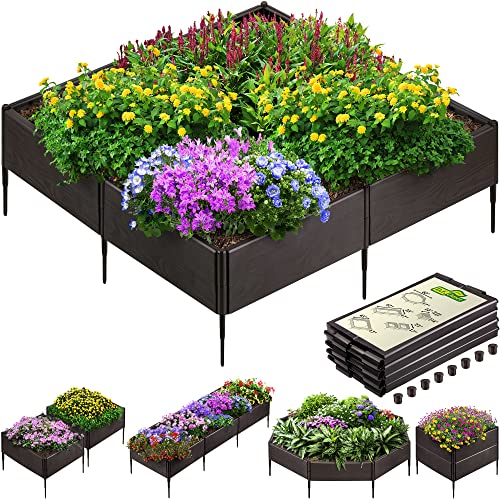
Raised beds made from recycled plastic are durable, lightweight, and often more affordable than wood or resin.
They’re also weather-resistant and won’t rot or degrade over time.
Concrete or Cinder Blocks
While not as natural looking, these materials are very durable and will last a long time.
They can be more work to set up, but once they’re in place, they’re virtually maintenance-free.

Konnichiwa! (Hello!) I'm Pat Tokuyama, a Japanese tofu cookbook author, who travels for music, food, and adventure. If you like Japanese tea, checkout some of the newestorganic japanese tea, matcha bowls and noren and more!
** Curious about the Plant Based Japanese Cooking Club? ** Learn more here!
Galvanized Steel
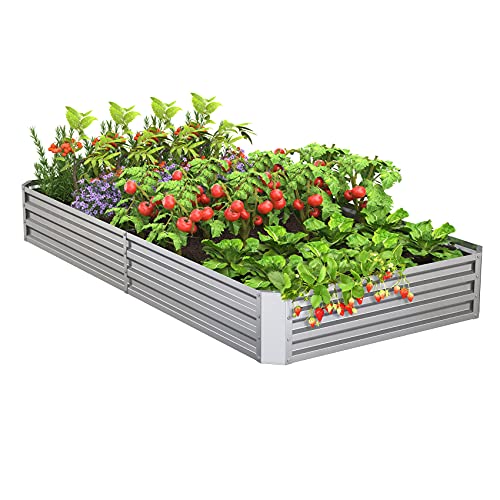
Galvanized steel is a very durable material for raised beds.
It won’t warp, crack, or rot, and it’s resistant to pests.
However, it can get hot in the sun and might not be the best choice if you live in a very warm climate.
Experience Effortless Indoor Gardening Bliss: AeroGarden Harvest
 AeroGarden Harvest with Gourmet Herb Seed Pod Kit
AeroGarden Harvest with Gourmet Herb Seed Pod Kit Easily cultivate indoor gardens with the AeroGarden Harvest. This hydroponic system supports six plants up to 12 inches tall, thriving in water without soil mess. Its 20W LED grow light accelerates germination, mimicking sunlight. The touch-sensitive control panel simplifies monitoring, reminding you to add water and plant food. Complete with LED grow light system, power adapter, plant food, and Gourmet Herb Seed Pod Kit, it's all you need for vibrant indoor greenery. Start your hassle-free gardening journey today!
- Indoor gardening made easy with AeroGarden Harvest, eliminating soil mess.
- Year-round harvests regardless of outdoor conditions.
- Compact countertop design accommodates six plants.
- Accelerated growth thanks to the 20W LED grow light.
- Higher upfront cost compared to traditional gardening methods.
- Reliance on electricity for the LED light increases energy consumption.
- Limited plant variety may be restrictive for some users.
Conclusion
Remember to avoid treated wood because it may contain chemicals that could leach into the soil and be absorbed by your plants.
You should also think about the aesthetics of your garden and choose a material that matches your style and complements your outdoor space.


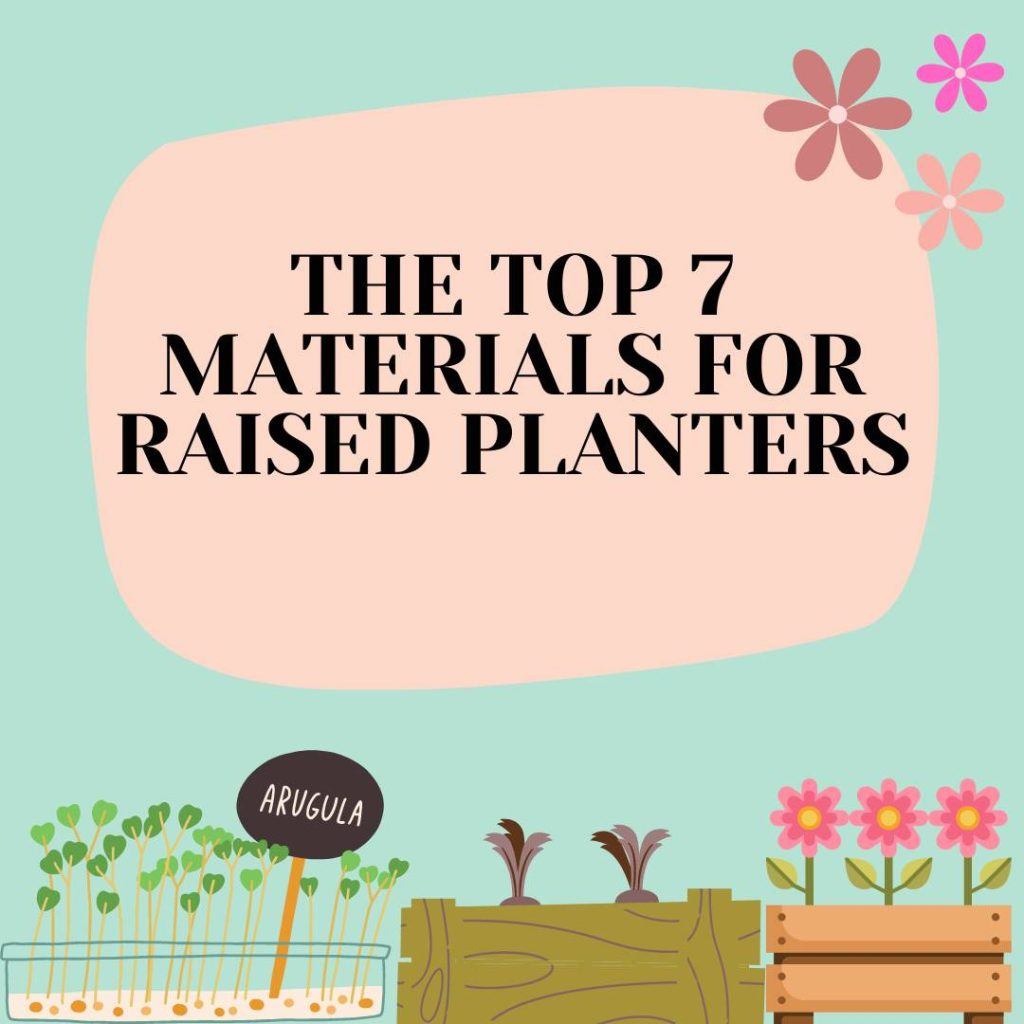




Konnichiwa! (Hello!) I'm Pat Tokuyama, a Japanese tofu cookbook author, who travels for music, food, and adventure. If you like Japanese tea, checkout some of the newestorganic japanese tea, matcha bowls and noren and more!
** Curious about the Plant Based Japanese Cooking Club? ** Learn more here!